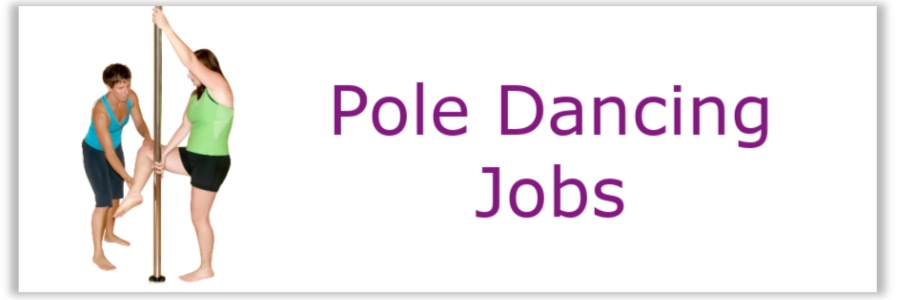How Many Calories Do You Burn Pole Dancing?
Home > FAQ > Pole Fitness FAQ > Calories Burned Pole Dancing
I'm wondering how pole dancing compares to other kinds of exercise. I
want to do something fun for my fitness program. Will pole dancing help
me burn a lot of calories or is it mainly for toning up?
~ Question submitted by Alison
Key Points in this Article
- There are several factors that determine how many calories you'll burn with pole dancing.
- Your age, weight, gender and body composition, as well as the intensity and duration of each session, all have an impact on your calorie burn.
- The strength building aspect of pole dancing can help you burn calories and lose fat even when you're at rest.
Introduction
There's no doubt that pole dancing is a fun, engaging, and dynamic way to burn calories while improving your strength and flexibility. But how many calories does it actually burn? The answer depends on several key factors, such as your weight, the intensity of your session, and its duration. Understanding these variables can help you make the most of your pole dancing workouts and maximize your fitness benefits, including your caloric burn.
Why "how many calories does pole dancing burn?" is a loaded question
The fact is that with any given activity, the number of calories burned depends not only on what activity you're doing, but also on the intensity of the activity. That's important, because if you read that pole dancing burns 800 calories an hour, but you're at a beginner level doing workouts that consist mainly of simple, ground-based moves, then an 800 calorie hourly burn is probably being overly optimistic.
The simple truth is that a person performing very basic pole dance moves that elevate the heart rate only slightly, will burn significantly fewer calories than someone of similar age, weight and body composition who performs a continuous series of advanced tricks.
Factors Affecting Calorie Burn
- Your Weight
Heavier individuals will burn more calories because their bodies require more energy for movement.
- Intensity
High-intensity pole dancing sessions, where you incorporate complex spins, climbs, or inversions, burn more calories than less strenuous routines.
- Duration
The longer your session, the more calories you’ll burn. Caveat: it's essential to focus on proper form and avoid overexertion so you don't risk injury. Remember, you can't burn calories if you're injured and can't pole!
Your age, gender and body composition also help determine the amount of energy (calories) you'll expend while pole dancing. The reasons for this are fairly straightforward:
- Our metabolism (the rate at which we burn calories) naturally decreases as we age, mostly due to a gradual loss of muscle mass.
- Muscle burns more calories than fat, so if you have a higher percentage of muscle mass you'll burn more calories no matter what you're doing.
- Finally, men typically burn more calories than women, assuming all other factors are equal. This is because men in general have a higher proportion of muscle than women (thanks, testosterone!).
So if you're a lean, muscular 23 year old male, you're going to enjoy a significantly higher calorie burn than a 50 year old woman with an average amount of body fat. And that's true no matter what the activity or intensity, and even if both of you weigh exactly the same.
A General Guide to Calories Burned with Pole Dancing
As you can see from the information above, there are several variables that make it impossible to provide an exact number for how many calories are burned pole dancing, since this number will be different for each person. However, as a general guide, let's compare pole dancing to aerobic fitness classes, since this is something most people are familiar with.
Pole dancing at a beginner level, where few spins or tricks are
involved, burns a similar number of calories per hour as a mild-moderate
aerobic fitness class. This level of pole dancing would involve floor-based moves almost exclusively, with perhaps a couple of basic spins.
Intermediate level pole dancing, where
some spins and other airborne moves - such as climbs and holds - are interspersed with more basic moves,
is roughly equivalent to a moderate-intense aerobic fitness class in
terms of calorie burn. At this level you will also typically be working on building strength, so you will be starting to benefit from the ongoing calorie-burning benefits of increasing your muscle mass (more on this in the next section).
And at an advanced level, such as that shown in these pole dance competition videos, the number of calories burned per hour is obviously very high. At
this level, pole dancing is both a cardio and strength workout, one which
places heavy demands on the body's energy systems and muscle resources. This results in a high
rate of caloric burn both during and after the workout. It would not be
unreasonable to assume a rate of 800+ calories per hour at this level, though sustaining that level of activity for a full hour is unlikely!
On average:
- A 130-pound person might burn around 250–300 calories per hour.
- A 180-pound person might burn approximately 400–450 calories per hour.
Remember, the above numbers are just averages. These numbers can vary widely based on individual effort and other factors. Using a fitness tracker is a great way to get a more accurate estimate tailored to your age, weight and activity level.
Pole Dancing and Toning Up
It's also worth
mentioning that "toning up" is actually one of the best ways to burn
calories. Most people focus on the hourly calorie burn of a given
activity when they are trying to lose weight and/or reduce body fat.
This is understandable since we all like instant results, but it's not the whole picture. In fact, it's a
relatively small part of the weight loss equation.
To understand
why this is, we need to understand that muscle burns significantly more
calories than fat. So the more muscle you have, the more calories you'll
burn, even at rest. In other words, when you engage in aerobic exercise you're increasing your calorie burn for the period of time that you're exercising. But when you increase the amount of muscle on your body, you're increasing your calorie burn 24/7.
Yes, the number of calories you expend per hour will be higher during aerobic exercise, but let's keep in mind that while 1 hour of moderate exercise might burn 400 calories, there are 23 more hours in the day. And more muscle tissue equals more calories burned every hour of every day, not just for the hour that you're exercising.
Let's check the science. 1 kg of muscle burns about 13 calories per hour, which translates into about 6 calories per hour for each pound of muscle. Given that adipose tissue (fat) burns only about 2 calories per hour per pound, if you swap 5 lbs of fat for 5 lbs of muscle, keeping your overall body weight the same, that extra 5 lbs of muscle will burn an additional 20 calories per hour (6-2=4 additional calories per hour burned by replacing 1 lb of fat with 1 lb of muscle, multiplied by 5 lbs=20 calories per hour).
Then multiply those 20 calories by 24 hours in a day, and you're looking at an additional calorie burn of 480 calories per day just by dropping 5 lbs of fat and replacing it with 5 lbs of muscle. And this, dear pole dancer, is the reason that "toning up" does a whole lot more for your calorie burn than you might think.
Now of course this doesn't mean that you should NOT do any aerobic exercise. This type of exercise definitely benefits your heart and lungs in a way that muscle toning doesn't. Nor does it mean that you need to "bulk up" to benefit from the calorie-burning benefits of increased muscle mass. As you saw in the example above, replacing just a few pounds of fat with muscle can make a huge difference.
What
does that mean in practical terms for someone who is looking to reduce
body fat and/or lose some weight? Keep the cardio for sure, but also make strength training a regular part
of your fitness routine to see long term, sustainable results.
Lucky
for you, pole dancing does double duty. It's a great calorie burning
activity that also builds muscle, so you can keep on burning calories
even after your pole workout is done!
Conclusion
What's the short answer to the question of how many calories do you burn pole dancing?
It's less important than you think!
Do your cardio, work your muscles, and choose activities you enjoy (like pole dancing!). Remember, if you have fun with your fitness program you're much more likely to stick with it. And in the final analysis, the calorie burn of any activity remains purely theoretical unless you actually do it.
Pole dancing is a fun and effective way to burn calories, build strength, and enjoy yourself. By understanding the factors that influence calorie burn and taking steps to optimize your workouts, you can achieve your fitness goals and make the most of every session. Why not give it a spin and see the results for yourself?
What's New?
-
Pole Dance Instructor Salary
Apr 18, 25 06:27 PM
Curious what an average pole dance instructor salary is? Whether you're looking to hire, or looking to teach, you'll find info here. -
Pole Dance Instructor Certification - Can I Teach Without It?
Apr 18, 25 06:14 PM
Getting a pole dance instructor certification can benefit you in many ways, but is it required? Find out if certification is something you should pursue if you plan to teach pole dancing. -
Find Pole Dancing Jobs
Apr 18, 25 05:25 PM
Find out where to look for pole dancing jobs, how to approach employers, or even how to create your own pole dancing job. You can teach pole dancing too! -
Pole Dancing Gifts
Apr 17, 25 10:28 AM
Need ideas for pole dancing gifts? Get all the latest gift ideas for your pole dancer right here, including last minute and downloadable gifts. -
C-Section and Pole Dancing - When Is It Safe to Start?
Apr 16, 25 04:38 PM
Wondering how long you should wait after a c-section before you can start pole dancing (again)? Get the scoop on c-section and pole dancing here.
Your Pole Pal loves to have fun, but she also has to earn a living, right? That's why you'll see ads on this site. She may also earn commissions on some of the products you'll see here, but there's never any cost to you since the advertisers pay for these.
The income generated through these means helps ensure Your Pole Pal can devote the time to providing you with all the free and fabulous information & resources you'll find on this website.
Want to learn more? Your Pole Pal invites to you read her full advertising disclosure. You know...in case you haven't read enough legalese lately.




